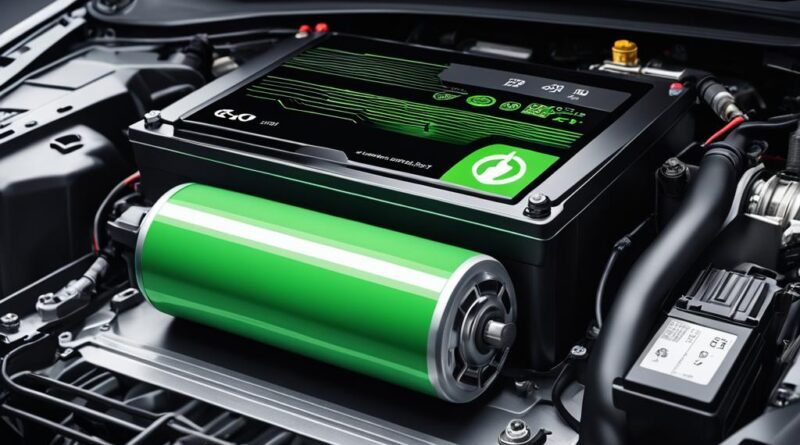Hybrid Car Battery Lifespan – Carmax Insights
Hybrid cars have revolutionized the automotive industry with their eco-friendly approach to transportation. These vehicles combine an internal combustion engine with an electric motor, resulting in reduced fuel consumption and emissions. As more people consider buying hybrid cars, understanding the lifespan of hybrid car batteries is essential.
Hybrid car batteries are responsible for powering the electric motor and storing energy. They play a crucial role in the vehicle’s overall performance and efficiency. Carmax, a renowned automotive retailer, provides valuable insights into hybrid car battery lifespan to help potential buyers make informed decisions.
Key Takeaways:
- Hybrid car batteries power the electric motor and store energy.
- The lifespan of hybrid car batteries depends on various factors, such as maintenance, charging routines, and temperature fluctuations.
- Well-maintained hybrid car batteries can last between 150,000 and 200,000 miles.
- Warranty coverage is available for hybrid car batteries, usually ranging from eight to ten years.
- Proper maintenance and adherence to manufacturer guidelines are crucial for maximizing hybrid car battery lifespan.
Manufacturer’s Warranty vs. Hybrid-Specific Warranty
When it comes to hybrid car warranties, there are two primary categories to consider: manufacturer’s warranties and hybrid-specific warranties. While both provide protection for your hybrid vehicle, they have different areas of focus.
Manufacturer’s Warranty:
The manufacturer’s warranty covers the entire vehicle, including the hybrid system and battery. This warranty is provided by the vehicle manufacturer and typically extends for a specific period of time or mileage, such as 3 years/36,000 miles or 5 years/60,000 miles. It offers comprehensive coverage and protects you against defects or failures that may occur in any part of the vehicle, not just the hybrid system.
Hybrid-Specific Warranty:
On the other hand, hybrid-specific warranties are designed specifically for hybrid systems and batteries. These warranties provide coverage that is tailored to the unique needs of hybrid vehicles. Hybrid-specific warranties typically offer extended coverage for the hybrid system and battery, ensuring peace of mind and protection for these essential components.
Understanding the differences between manufacturer’s warranties and hybrid-specific warranties is crucial when purchasing a hybrid car. While a manufacturer’s warranty offers comprehensive coverage for the entire vehicle, a hybrid-specific warranty focuses specifically on the hybrid system and battery, providing specialized protection.
“A manufacturer’s warranty covers the entire vehicle, while a hybrid-specific warranty specifically addresses the hybrid system and battery.”
Comparing Manufacturer’s Warranty and Hybrid-Specific Warranty
| Aspect | Manufacturer’s Warranty | Hybrid-Specific Warranty |
|---|---|---|
| Coverage | Covers the entire vehicle, including hybrid parts | Specifically addresses the hybrid system and battery |
| Duration | Varies by manufacturer, typically 3-5 years or a specific mileage | Varies by warranty provider, typically extended coverage beyond the manufacturer’s warranty |
| Focus | Comprehensive coverage for the entire vehicle | Specialized coverage for hybrid components |
| Benefits | Wide service network, peace of mind for overall vehicle | Confidence in hybrid system and battery longevity |
Choosing the right warranty for your hybrid car depends on your priorities and needs. If you value comprehensive protection for the entire vehicle and want the peace of mind that comes with it, a manufacturer’s warranty may be the best option. On the other hand, if you wish to focus specifically on the hybrid system and battery, and have confidence in their longevity, a hybrid-specific warranty may be more suitable for your requirements.
“Choosing the right warranty depends on your priorities—comprehensive protection or specialized coverage for hybrid components.”
Advantages of Manufacturer’s Warranty
Manufacturer’s warranties offer comprehensive protection for hybrid owners. They cover a wide range of vehicle components, including hybrid parts, providing a holistic sense of security. Having a manufacturer’s warranty can give you peace of mind knowing that potential repair costs will be covered. Additionally, manufacturer-backed warranties often come with access to a wide service network, ensuring that qualified technicians handle any repairs or maintenance.
With a manufacturer’s warranty, you can enjoy comprehensive protection for your hybrid car. Whether it’s the hybrid system, battery, or other important components, the warranty has you covered. By offering coverage for various parts, these warranties provide a sense of peace of mind, knowing that unexpected repair costs won’t be a burden.
The wide service network is another advantage of manufacturer’s warranties. With a large service network, you have access to authorized technicians who are specially trained to handle hybrid car repairs and maintenance. This ensures that your hybrid car receives the best possible service and care when needed.
“Having a manufacturer’s warranty can give you peace of mind knowing that potential repair costs will be covered.”
Overall, the manufacturer’s warranty offers comprehensive protection, peace of mind, and access to a wide service network. It is an essential aspect to consider when purchasing a hybrid car, providing you with the confidence and support you need for a worry-free ownership experience.
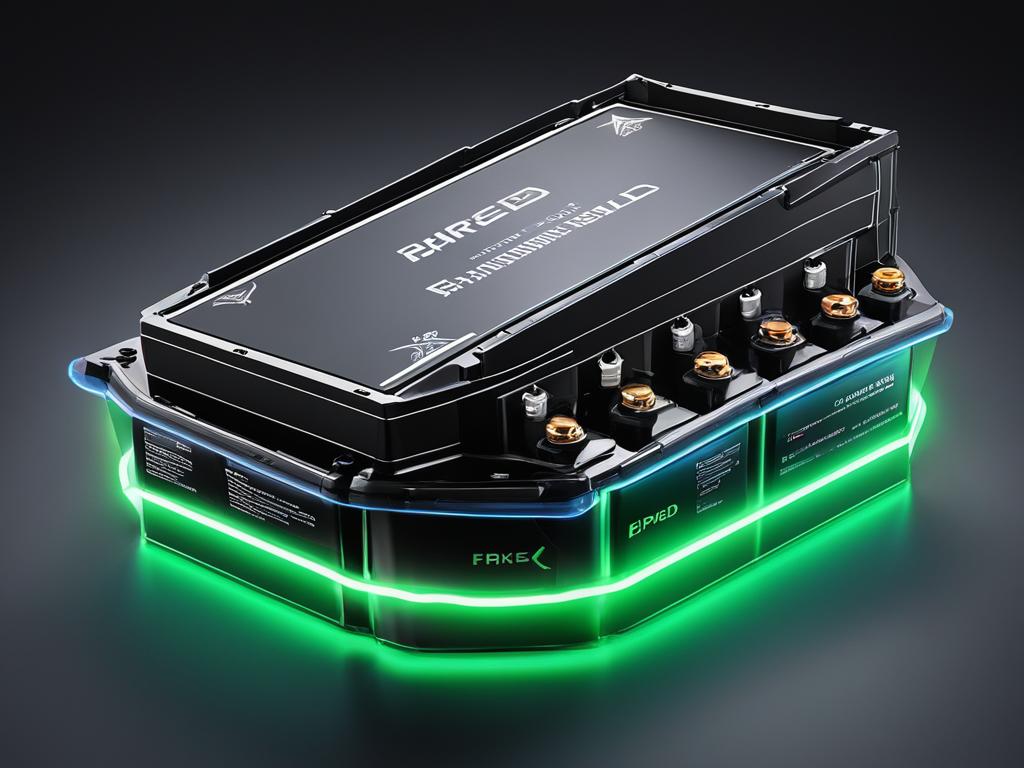
Advantages of Hybrid-Specific Warranty
Hybrid-specific warranties offer specialized coverage and extended protection for the hybrid system, battery, and related components of your hybrid vehicle. This tailored coverage ensures that the core elements of your hybrid are safeguarded, providing you with peace of mind and promoting long-lasting performance and efficiency.
With hybrid-specific warranties, you can have confidence in the longevity of your hybrid battery, which is the heart of the hybrid system. These warranties address the unique needs of hybrid vehicles, offering reassurance about the performance and lifespan of your battery.
If you encounter any issues or concerns with the hybrid system or battery, the hybrid-specific warranty provides the necessary support and coverage for repair or replacement. By choosing a hybrid-specific warranty, you can have the confidence that your hybrid vehicle is backed by comprehensive protection and expert care.
Whether you’re driving a hybrid sedan, SUV, or crossover, investing in a hybrid-specific warranty ensures that you have the specialized coverage and extended hybrid system protection needed to enjoy your hybrid vehicle for years to come.
Factors Influencing Hybrid Car Warranties
When considering a hybrid car purchase, it’s important to understand the various factors that influence the terms and coverage of hybrid car warranties. These factors can vary depending on the manufacturer, model of the hybrid car, battery life, state regulations, and maintenance and service requirements.
The manufacturer and model of the hybrid car play a significant role in determining the warranty terms and coverage. Different manufacturers offer varying warranty durations and coverage specifics, which can affect how comprehensive the warranty is for your hybrid car.
The battery life of the hybrid car is also an important consideration when it comes to warranty coverage. Hybrid car batteries can have different lifespans, and this can impact the warranty terms. For example, some warranties may offer extended coverage for the battery if it meets certain longevity criteria.
In addition to manufacturer and battery life, state regulations can also influence hybrid car warranties. Some states have more stringent requirements or consumer protection laws that may affect the warranty coverage for hybrid cars sold in those states. It’s important to be aware of any state-specific regulations that may impact your warranty coverage.
Lastly, adhering to the maintenance and service requirements outlined by the manufacturer is crucial for maintaining warranty coverage. Regular maintenance and service, such as oil changes and inspection, are often necessary to keep the warranty valid. Failure to meet these requirements may void the warranty or limit its coverage.
Manufacturer and Model
The manufacturer and model of the hybrid car are key factors in determining the warranty terms and coverage. Different manufacturers offer varying warranty durations and coverage specifics. Here is a table illustrating some examples of warranty terms offered by popular hybrid car manufacturers:
| Manufacturer | Model | Warranty Duration | Coverage |
|---|---|---|---|
| Toyota | Camry Hybrid | 8 years or 100,000 miles | Comprehensive coverage, including hybrid system and components |
| Honda | Insight | 8 years or 100,000 miles | Comprehensive coverage, including hybrid system and components |
| Ford | Fusion Hybrid | 8 years or 100,000 miles | Comprehensive coverage, including hybrid system and components |
Table: Examples of hybrid car warranty terms offered by popular manufacturers
It’s important to research and compare the warranty terms offered by different manufacturers and models before making a final decision on your hybrid car purchase. This will give you a better understanding of the coverage and peace of mind that comes with your chosen hybrid car.
Battery Life and State Regulations
The battery life of the hybrid car is another important factor that can influence warranty coverage. Hybrid car batteries have varying lifespans, and some warranties may offer extended coverage if the battery meets specific longevity criteria. Here is a table illustrating the average battery life of different hybrid car models:
| Manufacturer | Model | Battery Life |
|---|---|---|
| Toyota | Prius | 8-10 years |
| Honda | Accord Hybrid | 8-10 years |
| Ford | Escape Hybrid | 8-10 years |
Table: Average battery life of different hybrid car models
In addition to battery life, state regulations can have an impact on hybrid car warranties. Some states have more stringent requirements or consumer protection laws that may affect the warranty coverage for hybrid cars sold in those states. It’s important to familiarize yourself with the regulations specific to your state to ensure you understand the warranty coverage you are entitled to.
Maintenance and Service Requirements
Adhering to the maintenance and service requirements outlined by the manufacturer is crucial for maintaining warranty coverage. Hybrid cars often have specific maintenance and service schedules, and failure to follow these guidelines may void the warranty or limit its coverage. Regular maintenance activities such as oil changes, fluid inspections, and battery checks are essential for preserving the warranty coverage of your hybrid car.
Choosing authorized service centers for maintenance and repairs is also important to ensure that qualified technicians handle any service needs. Authorized service centers have the necessary expertise and access to genuine parts, ensuring the integrity of your warranty coverage.
By understanding the factors that influence hybrid car warranties, you can make an informed decision when purchasing a hybrid car and effectively maintain the warranty coverage throughout the lifespan of your vehicle.
Hybrid Car Warranty: Maintenance
Maintaining your hybrid car according to the manufacturer’s recommendations is crucial for preserving warranty coverage. By following scheduled maintenance activities, you can ensure optimal performance and uphold warranty terms.
Here are some essential maintenance tasks to consider:
- Regular oil changes
- Fluid inspections
- Tire rotations
- Brake inspections
- Battery checks
These maintenance activities help prevent potential issues and keep your hybrid car in top condition, ensuring compliance with warranty requirements. Regular oil changes, for example, help maintain engine performance and extend the life of critical components.
Choosing authorized service centers for maintenance and repair is also crucial. Authorized service centers have technicians who are trained specifically for hybrid vehicles, ensuring the expertise needed to handle the unique complexities of hybrid systems.
Complying with maintenance requirements reflects your commitment to the longevity and optimal functionality of your hybrid car. Adhering to these guidelines not only safeguards the integrity of your warranty coverage but also helps prevent costly repairs down the line.
The Importance of Authorized Service Centers
Authorized service centers ensure that your hybrid car receives the necessary expertise and care.
Authorized service centers, recognized and approved by the manufacturer, are your best choice when it comes to maintaining and repairing your hybrid car. These centers have direct access to genuine parts and diagnostic tools specifically designed for your hybrid vehicle. They are also well-versed in the latest hybrid car technologies and have the necessary training to handle any warranty-related repairs.
Authorized service centers offer the following benefits:
- Experienced technicians with specialized hybrid training
- Access to manufacturer-approved parts
- Compliance with warranty requirements
- Assurance of quality service
By choosing authorized service centers, you can be confident that your hybrid car is receiving the best care, maximizing its performance and longevity.
Table: Authorized Service Centers vs. Independent Mechanics
| Authorized Service Centers | Independent Mechanics |
|---|---|
| Specialized hybrid training for technicians | Varies depending on the individual mechanic |
| Access to manufacturer-approved parts | May not have access to genuine parts |
| Compliance with warranty requirements | No guarantee of warranty compliance |
| Quality service assurance | Varies depending on the individual mechanic |
Choosing authorized service centers for maintenance and repairs is a wise decision that ensures compliance, quality, and peace of mind.
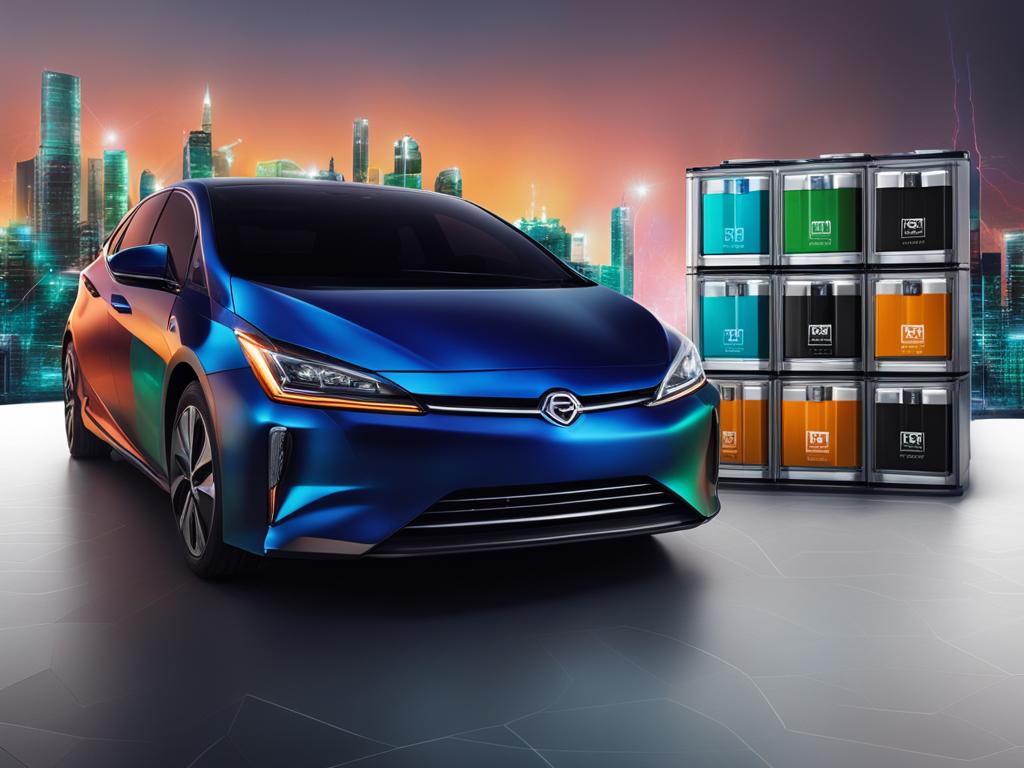
Varieties of Hybrid Batteries
Hybrid cars utilize different types of batteries to power their hybrid systems. The most common types of hybrid batteries include:
- Lithium-Ion Batteries: Lithium-ion batteries offer extended service lives and quick charging capabilities. They are lightweight and compact, making them ideal for use in hybrid vehicles. These batteries provide excellent power density and energy efficiency, contributing to improved performance and fuel economy.
- Nickel Metal Hydride (NiMH) Batteries: NiMH batteries are stable and cost-effective options for hybrid cars. They have relatively good energy density compared to lead acid batteries, offering a balance between performance and cost. NiMH batteries are commonly used in older hybrid car models.
- Lead Acid Batteries: Lead acid batteries have limitations in terms of capacity and storage potential. They are heavier and larger than lithium-ion and NiMH batteries, making them less suitable for hybrid vehicles. Lead acid batteries are mainly used in traditional internal combustion engine vehicles or as auxiliary batteries in hybrid systems.
Each type of battery has its own advantages and disadvantages, and automakers carefully select the battery type based on various factors such as cost, performance requirements, and technology advancements.
Advantages of Lithium-Ion Batteries
Lithium-ion batteries, with their extended service lives and quick charging capabilities, offer several advantages for hybrid cars:
- Improved fuel efficiency due to higher energy density
- Lightweight and compact, optimizing space utilization in the vehicle
- Lower self-discharge rates, ensuring longer shelf life
- Rapid charging capabilities, reducing downtime for recharging
Advantages of Nickel Metal Hydride (NiMH) Batteries
NiMH batteries, while not as advanced as lithium-ion batteries, offer several benefits for hybrid cars:
- Relatively good energy density at a lower cost compared to lithium-ion batteries
- High energy efficiency, contributing to better fuel economy
- Proven technology with a track record of reliability and safety
- Compatibility with existing hybrid systems and infrastructure
Advantages of Lead Acid Batteries
Lead acid batteries, although less common in modern hybrid cars, still have some advantages:
- Low cost compared to lithium-ion and NiMH batteries
- Simple and well-established technology
- Ability to provide high current levels for starting the vehicle
- Relatively reliable and widely available
Average Lifespan of Hybrid Car Batteries
Hybrid electric vehicle batteries have an average lifespan of around 80,000 to 100,000 miles. Well-maintained batteries can last between 150,000 and 200,000 miles. Most hybrid car batteries only need to be replaced once, and it is rare to hear of batteries being replaced more than twice. Proper maintenance is crucial for extending the lifespan of hybrid car batteries.
The Importance of Maintenance
To ensure the longevity of hybrid car batteries, proper maintenance is essential. Regularly following the manufacturer’s recommended maintenance schedule can help prevent premature battery deterioration. This includes regular inspections, testing, and necessary repairs or replacements. Adhering to proper charging and operating practices can also play a significant role in extending the lifespan of hybrid car batteries.
Maximizing Hybrid Car Battery Lifespan
There are several steps hybrid car owners can take to maximize the lifespan of their batteries:
- Adhere to the manufacturer’s recommended maintenance schedule and guidelines.
- Keep the battery clean and free of debris to prevent overheating.
- Avoid exposing the battery to extreme temperatures, as both excessive heat and cold can negatively impact battery performance.
- Follow proper charging practices, including fully charging the battery when necessary and avoiding frequent quick or partial charges.
- Regularly test the battery’s health and performance to detect any issues early.
By following these best practices and staying proactive about battery maintenance, hybrid car owners can ensure that their batteries reach and even exceed their expected lifespan.
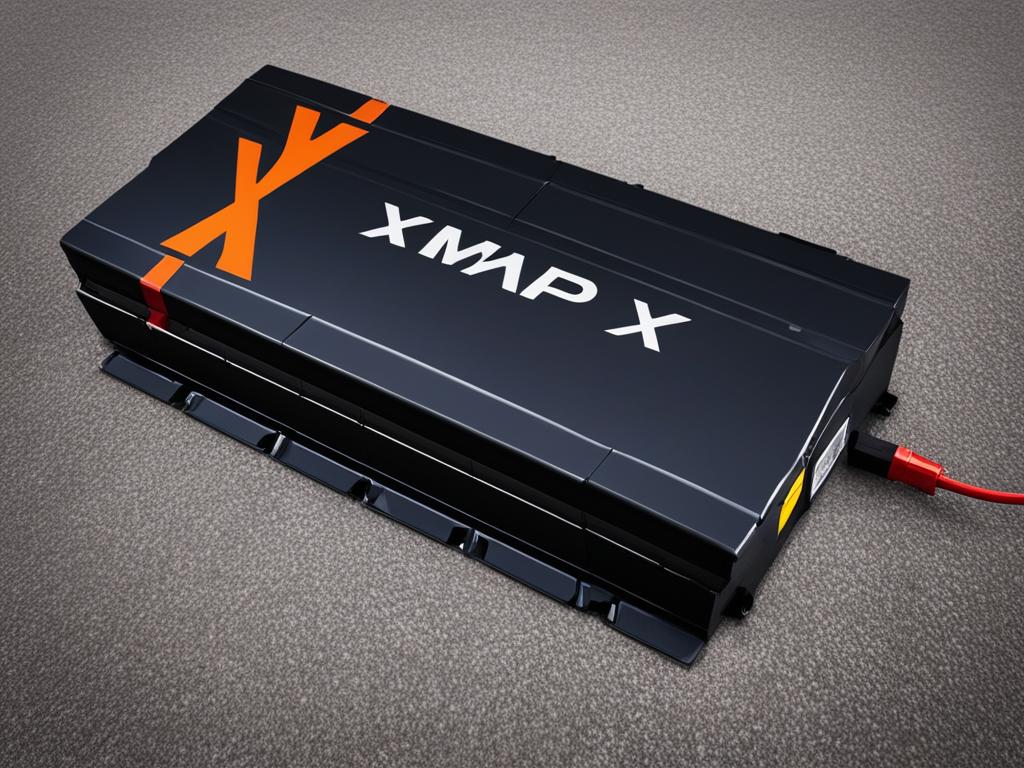
Factors Influencing Hybrid Battery Lifespan
Several factors play a significant role in determining the lifespan of hybrid car batteries. By understanding and managing these factors, hybrid owners can optimize the longevity and performance of their batteries.
Charging Routine
Adhering to the manufacturer’s charging guidelines is crucial for preserving the health of hybrid batteries. Quick, partial charges should be avoided, as they can negatively impact battery life. Instead, it is recommended to fully charge the hybrid when necessary, following the recommended charging routine. This practice helps maintain the battery’s capacity and extends its overall lifespan.
Temperature Fluctuations
Temperature fluctuations outside the recommended range can have detrimental effects on hybrid car batteries. Extreme heat or cold can accelerate degradation and reduce the battery’s capacity over time. Therefore, it is essential to park the hybrid in shaded areas or garages to minimize exposure to extreme temperatures. By keeping the battery within the recommended temperature range, owners can maximize its lifespan.
Maintenance Frequency
Regular maintenance and testing are crucial for identifying any potential issues early on and extending the lifespan of hybrid car batteries. By following the manufacturer’s maintenance schedule and ensuring regular check-ups, owners can detect and address any problems promptly. This proactive approach helps maintain the battery’s performance and overall health, ultimately prolonging its lifespan.
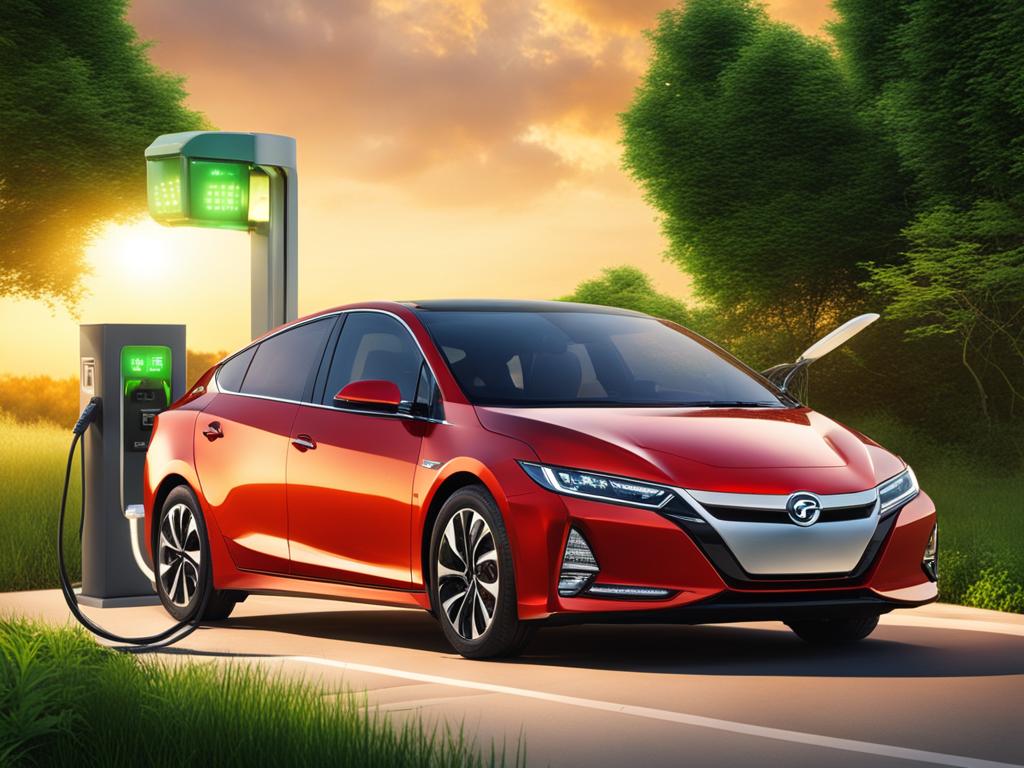
By managing the charging routine, temperature fluctuations, and maintenance frequency, hybrid car owners can optimize the lifespan of their batteries. Adhering to these practices ensures that the batteries perform at their best and provide reliable, efficient power for the hybrid vehicle.
When to Replace a Hybrid Battery
Hybrid batteries should only be replaced when routine maintenance reveals poor health or when there are signs of impending battery failure. Proactively monitoring the condition of your hybrid battery is essential to prevent unexpected breakdowns and ensure the optimal performance of your hybrid car.
Symptoms of Battery Failure
To determine if your hybrid battery needs replacement, watch out for the following symptoms:
- Decreased charge life: If your hybrid vehicle no longer maintains a charge for as long as it used to, it could be an indicator of a deteriorating battery.
- Irregular charge state fluctuations: Noticeable fluctuations in the battery’s charge state, such as sudden drops or inconsistent readings, can suggest a failing battery.
- Reduced fuel efficiency: If you find that your hybrid car’s fuel economy has significantly decreased despite regular usage patterns, it may be due to a compromised battery.
- Heightened engine dependence: An increased reliance on the internal combustion engine rather than electric power can indicate a weak hybrid battery.
If you experience any of these symptoms, it is recommended to consult a qualified hybrid mechanic for battery checks and potential replacement. They will be able to diagnose the issue accurately and provide appropriate solutions to restore your hybrid car’s performance.
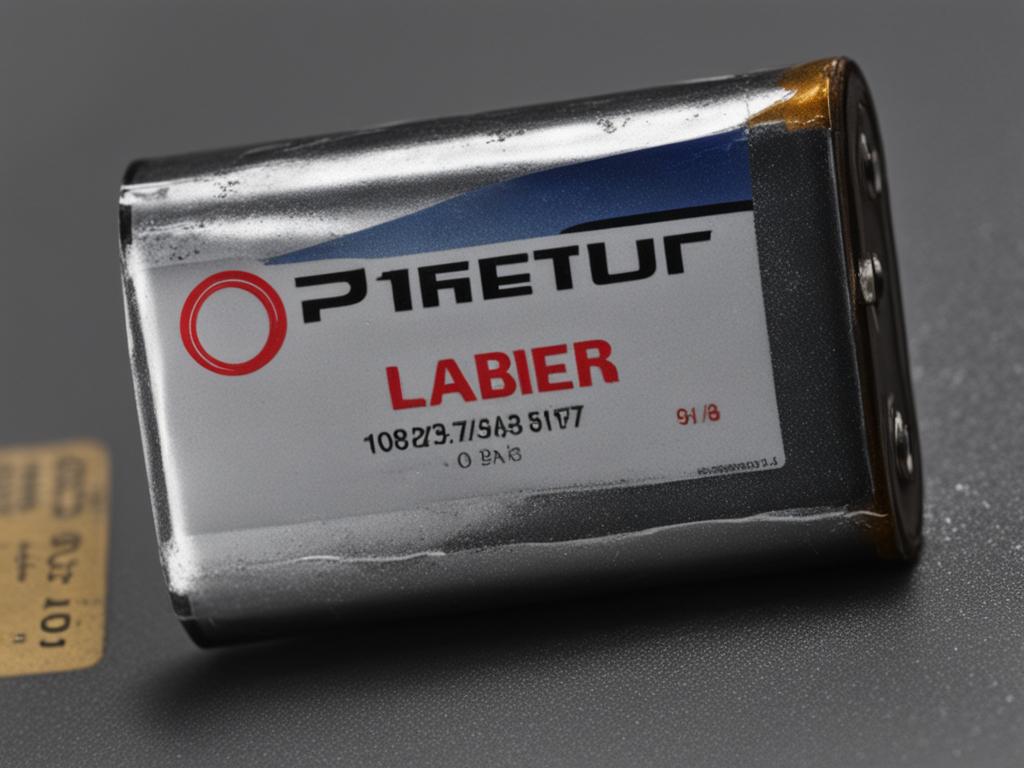
Warranty Coverage for Battery Replacement
When it comes to hybrid car batteries, warranty coverage is a key consideration for owners. Hybrid car manufacturers typically offer warranties that range from eight to ten years, ensuring peace of mind and protection for your battery investment.
If a hybrid battery fails within the warranty period, you can rest assured that replacement is usually covered. Depending on the terms of the warranty, replacement may be free or available at a prorated cost. This warranty coverage helps minimize the financial burden of a battery failure and ensures that your hybrid car remains on the road.
It’s important to note that the cost of hybrid battery replacement can vary. Factors such as the make and model of your hybrid car, as well as the specific battery technology used, can influence the cost. On average, hybrid battery replacement costs range from $2,000 to $8,000. Consulting with a trusted hybrid mechanic can provide you with a more accurate estimate based on your vehicle’s specifications.
When it comes to disposing of hybrid batteries, rest assured that it’s not an environmental problem. Hybrid batteries are designed to be fully recyclable, minimizing their impact on the environment. Recycling centers and specialized facilities accept hybrid batteries for proper disposal and recycling, ensuring that valuable resources are reused and reducing waste.
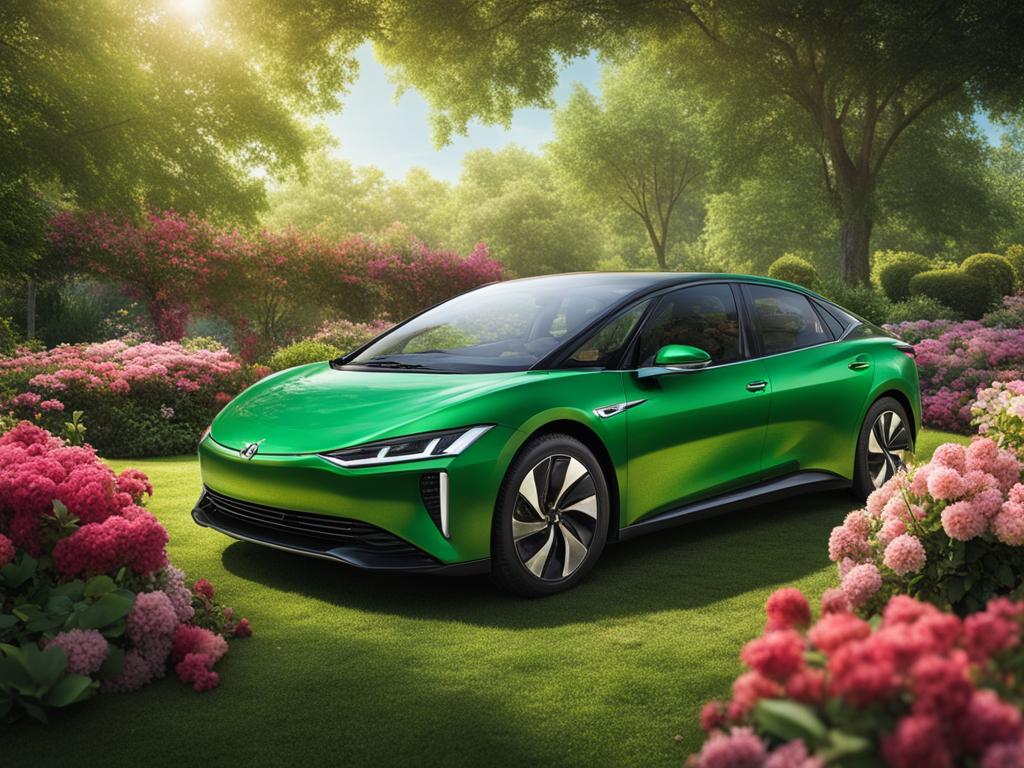
Understanding the warranty coverage for hybrid battery replacement is crucial for hybrid car owners. It provides the necessary protection and financial peace of mind in case of battery failure. Additionally, the eco-friendly disposal and recycling of hybrid batteries contribute to a sustainable future.
Conclusion
Understanding the lifespan of hybrid car batteries is crucial for hybrid car owners. On average, hybrid car batteries can last between 80,000 to 100,000 miles. However, with proper maintenance and care, well-maintained batteries have shown to reach an impressive lifespan of 150,000 to 200,000 miles. This longevity allows hybrid owners to enjoy the benefits of these eco-friendly vehicles for many years.
When it comes to warranty coverage, both manufacturer’s warranties and hybrid-specific warranties provide valuable protection for hybrid car components, including the battery. Manufacturer’s warranties offer comprehensive coverage for the entire vehicle, while hybrid-specific warranties focus specifically on the hybrid system, battery, and related components. These warranties ensure that owners have peace of mind and access to qualified technicians when needed.
To maximize the lifespan of hybrid car batteries, it’s essential to prioritize proper maintenance, adhere to the manufacturer’s charging guidelines, and conduct regular battery checks. By following these recommendations, hybrid car owners can optimize the performance and longevity of their batteries, allowing them to enjoy the benefits of hybrid vehicles for years to come.
FAQ
What are the differences between manufacturer’s warranties and hybrid-specific warranties?
Manufacturer’s warranties cover the entire vehicle, including hybrid parts, while hybrid-specific warranties specifically address the hybrid system, battery, and related components.
What advantages does a manufacturer’s warranty offer?
Manufacturer’s warranties provide comprehensive protection for hybrid owners, covering a wide range of vehicle components, including hybrid parts. They also come with access to a wide service network, ensuring qualified technicians handle any repairs or maintenance.
What advantages does a hybrid-specific warranty offer?
Hybrid-specific warranties provide specialized coverage for the hybrid system, battery, and related components, ensuring that the core elements of your hybrid vehicle are safeguarded. They offer extended protection for essential components, promoting long-lasting performance and efficiency.
What factors influence hybrid car warranties?
The manufacturer and model of the hybrid car, battery life, state regulations, and adherence to maintenance and service requirements all influence hybrid car warranties.
How should I maintain my hybrid car to uphold warranty coverage?
It is crucial to maintain your hybrid car according to the manufacturer’s recommendations, including scheduled maintenance activities like regular oil changes and fluid inspections. Choosing authorized service centers for maintenance and repairs is also important.
What types of batteries do hybrid cars use?
Hybrid cars use different types of batteries, including lithium-ion batteries, nickel metal hydride (NiMH) batteries, and lead acid batteries.
What is the average lifespan of hybrid car batteries?
Hybrid car batteries have an average lifespan of around 80,000 to 100,000 miles, but well-maintained batteries can last between 150,000 and 200,000 miles.
What factors influence the lifespan of hybrid car batteries?
Adhering to the manufacturer’s charging guidelines, avoiding quick, partial charges, and fully charging the hybrid when necessary can maximize battery life. Temperature fluctuations outside the recommended range can damage the battery, and regular maintenance and testing are necessary to detect any issues early and extend battery life.
When should I replace a hybrid car battery?
Hybrid car batteries should only be replaced when routine maintenance reveals poor health or when there are signs of impending battery failure, such as decreased charge life, irregular charge state fluctuations, reduced fuel efficiency, and heightened engine dependence.
What warranty coverage is provided for hybrid batteries?
Hybrid car manufacturers typically provide warranty coverage for hybrid batteries ranging from eight to ten years. If a battery fails within the warranty period, replacement is usually free or available at a prorated cost.
How much does hybrid battery replacement cost?
The cost of hybrid battery replacement can vary but is generally between $2,000 and $8,000.
Can hybrid batteries be recycled?
Yes, hybrid batteries can be fully recycled, so disposal is not an environmental problem.

